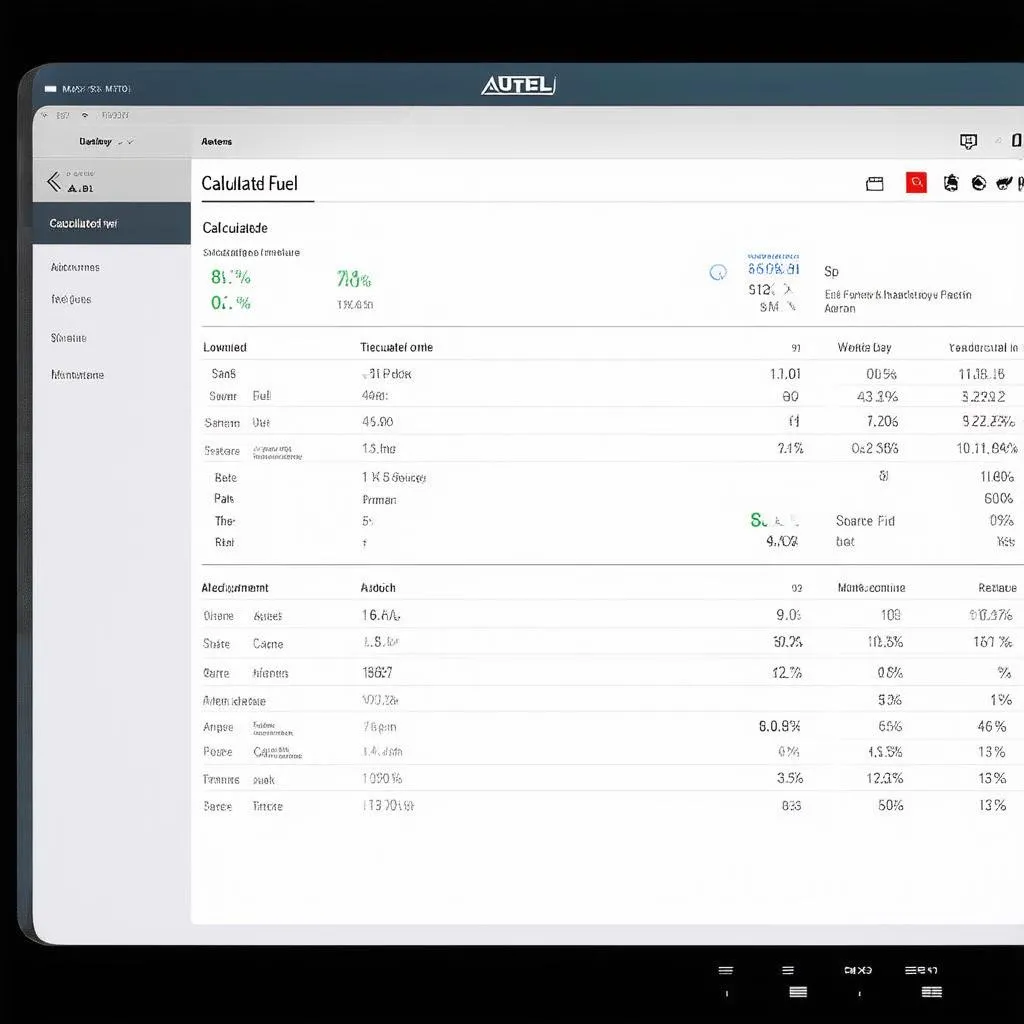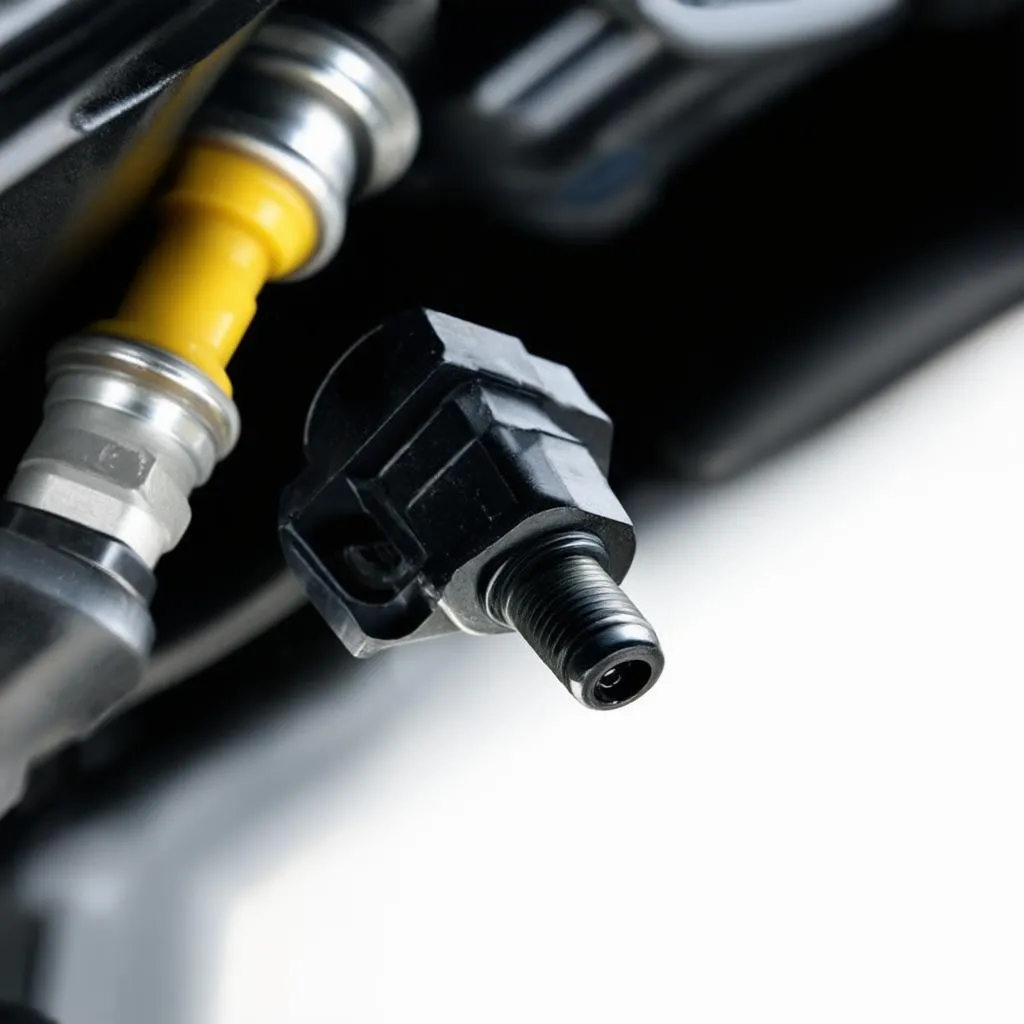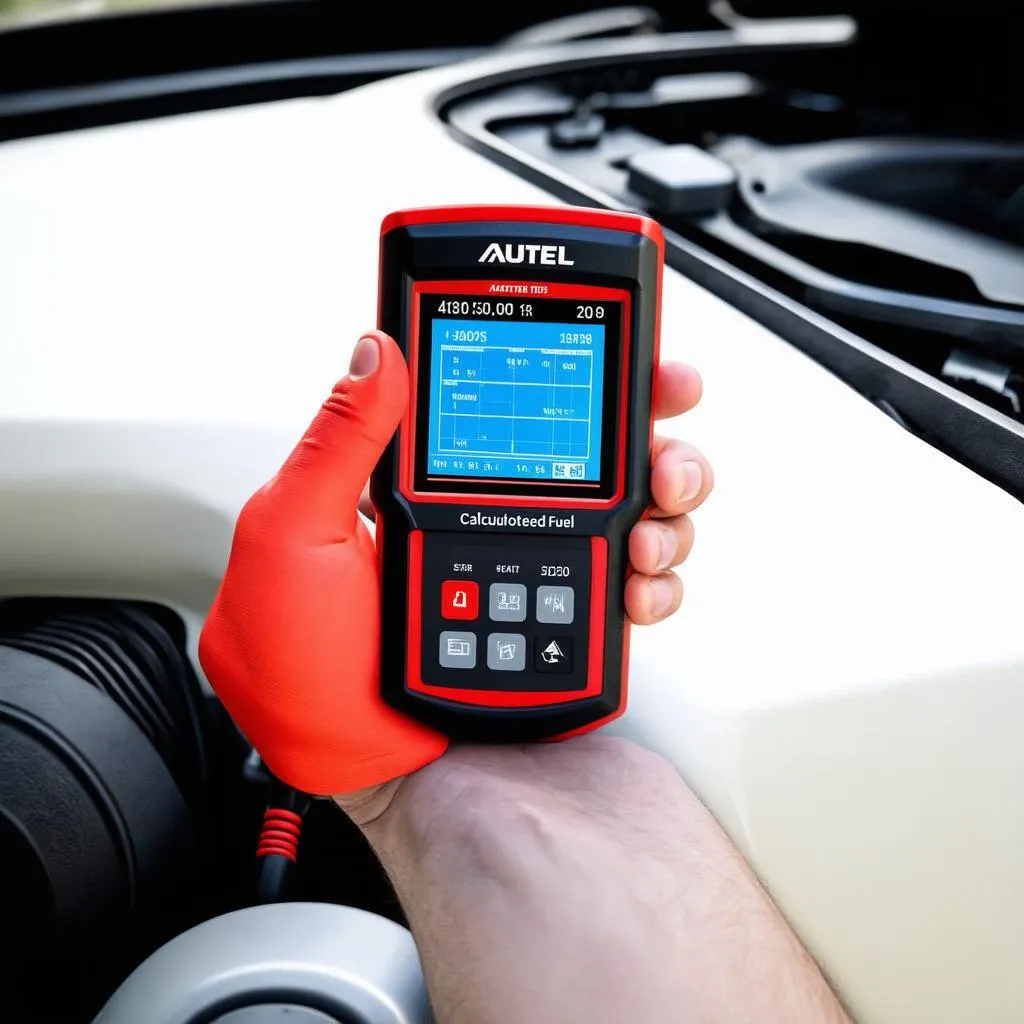Have you ever wondered how your car’s engine knows how much fuel to inject? Or maybe you’ve seen the “Calculated Fuel” reading on your Autel scanner and wondered what it means? It’s more than just a number, it’s a window into the intricate workings of your car’s fuel system.
Let’s dive into the world of Calculated Fuel Autel, exploring its significance and what it tells us about our vehicles.
What Does “Calculated Fuel” Mean?
Imagine your car’s engine as a delicate dance between air and fuel. The right mix is crucial for optimal performance and efficiency. The Calculated Fuel value, often displayed on diagnostic tools like Autel scanners, represents the amount of fuel your engine’s computer has determined is needed for each combustion cycle.
Why is Calculated Fuel Important?
1. A Glimpse into Engine Health:
Just like a doctor uses vital signs to assess a patient’s health, Calculated Fuel offers valuable insights into your car’s engine. It reveals how the engine is responding to various conditions, including:
- Air-fuel ratio: Autel’s Calculated Fuel reading can help determine if the engine is running rich (too much fuel) or lean (not enough fuel).
- Fuel pressure: Variations in Calculated Fuel can point to problems with the fuel pump, fuel injectors, or other components.
- Engine load: As the engine works harder, the Calculated Fuel value will typically increase to meet the demand for power.
2. A Tool for Troubleshooting:
Calculated Fuel is a powerful diagnostic tool, especially when coupled with other data from your Autel scanner. It can help pinpoint the root cause of various engine issues, such as:
- Stalling: A too-lean or too-rich fuel mixture can cause your car to stall.
- Rough idling: Inconsistent fuel delivery can lead to a rough idle.
- Poor fuel economy: An inefficient fuel mixture can significantly impact your gas mileage.
3. The Importance of Accuracy:
Calculated Fuel is a delicate balance, and even small deviations can affect your car’s performance and efficiency.
Think of it like a recipe: If you add too much or too little of an ingredient, the dish won’t be as delicious. Similarly, if the Calculated Fuel value is off, your car won’t run optimally.
How to Interpret Calculated Fuel Readings
“Calculated Fuel” is often expressed in milliliters (mL) or grams per combustion cycle.
- Low Calculated Fuel: Could indicate a lean fuel mixture, possible causes include a clogged air filter, a faulty oxygen sensor, or a vacuum leak.
- High Calculated Fuel: Could indicate a rich fuel mixture, potential causes include a faulty fuel injector, a clogged fuel filter, or a malfunctioning mass air flow sensor.
 Autel Scanner displaying Calculated Fuel
Autel Scanner displaying Calculated Fuel
Frequently Asked Questions
1. What factors affect Calculated Fuel?
Calculated Fuel is influenced by several factors, including:
- Engine temperature: A cold engine typically requires a richer fuel mixture for efficient combustion.
- Engine load: As the engine works harder, more fuel is needed.
- Throttle position: Opening the throttle demands a richer mixture for acceleration.
- Air temperature: Cold air is denser, requiring more fuel for combustion.
- Barometric pressure: Higher altitude means thinner air, potentially requiring more fuel.
2. Can I adjust Calculated Fuel myself?
Adjusting Calculated Fuel manually is generally not recommended. The engine’s computer is designed to precisely regulate fuel delivery based on a variety of factors.
However, if you suspect an issue with your Calculated Fuel readings, consulting a qualified mechanic is essential.
3. What is the normal Calculated Fuel range for my car?
The normal Calculated Fuel range varies significantly depending on the engine size, model, and year of your car.
Refer to your car’s owner’s manual or consult a mechanic for specific recommendations.
Understanding the Bigger Picture
Calculated Fuel is just one piece of the puzzle when it comes to understanding your car’s engine health. Autel scanners provide a wealth of information, including:
- Fuel pressure: Knowing your fuel pressure helps diagnose issues with the fuel pump, injectors, or fuel lines.
- Oxygen sensor readings: These sensors monitor the air-fuel ratio and provide valuable insight into combustion efficiency.
- MAF sensor readings: The Mass Air Flow sensor measures the amount of air entering the engine, which is essential for accurate fuel calculations.
Understanding these data points in conjunction with Calculated Fuel can help you identify and address potential issues before they become major problems.
 Faulty Fuel Injector
Faulty Fuel Injector
 Autel Maxisys
Autel Maxisys
Looking for More Information?
Visit our website at DiagXcar.com for more articles on Autel scanners, engine diagnostics, and automotive repair.
Don’t hesitate to contact us at Whatsapp: +84767531508 for any questions or concerns related to Autel scanners or European car diagnostics. We have a team of expert technicians available 24/7 to assist you!